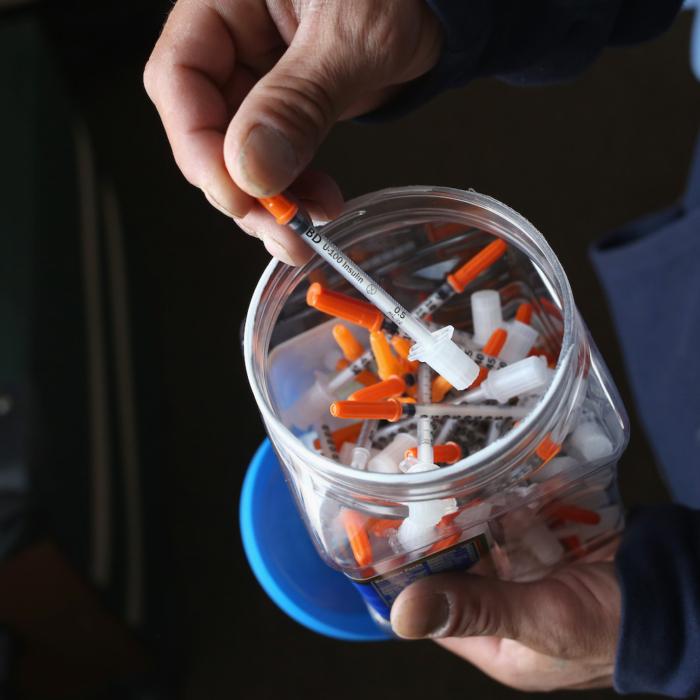An IT expert who poisoned a couple with fentanyl and forged their will in an attempt to take over their lucrative shower mat business has become the first person in Britain convicted of using the highly addictive drug to carry out a murder.
On Wednesday a jury at Chelmsford Crown Court found Luke D’Wit, 34, guilty of the murder of Stephen Baxter, 61, and his wife Carol, 64, who were found dead at their home in West Mersea, Essex in April 2023, having ingested fentanyl, which is 100 times stronger than morphine.
D'Wit faces a mandatory life sentence when he is sentenced on Friday.
His conviction came on the same day the government announced plans to ban another 15 synthetic opioids.
D'Wit’s trial heard he manipulated the Baxters by using a series of fake online profiles—including a doctor from Florida and members of a support group for the thyroid condition Hashimoto’s, which she had—and changed their will online to make him a director of their shower mat company, Cazsplash.
The couple, both sitting in their favourite armchairs, were found dead on Easter Sunday last year by their daughter Ellie, who had gone to check up on them after not having heard from them since Good Friday.
She was in the public gallery on Wednesday and broke down in tears as the unanimous guilty verdicts were returned.
Afterwards Ms. Baxter gave a statement, through the Essex Police website, in which she said: “My mum and dad are dead. But they didn’t just die. They were taken from me and my young children. My mum lost her freedom, her will, her ability to function two years prior to her murder due to her illness.”
“An illness no one could help with or understand because it was contrived by Luke D’Wit. Mum felt so alone and lost and there was nothing I could do other then [sic] give her my shoulder to cry on and cuddle her,” she added.
‘One of the Most Dangerous Men I Have Ever Come Across’
Detective Superintendent Rob Kirby, who led the investigation, said: “In all my years of policing, Luke D’Wit is one of the most dangerous men I have ever come across. I have absolutely no doubt in my mind had he not been caught he would have gone on to kill further people.”Mr. Kirby said D'Wit had acted “disgracefully” during the trial by claiming it was Mr. Baxter who had encouraged him to make up fake personas to give Mrs. Baxter “someone to talk to and air all her grievances to.”
Detectives found D'Wit had forged a new will for the couple on his phone the day after they were found dead and even created a fake solicitor to supposedly support the document.
Prosecutor Tracy Ayling, KC told the jury D'Wit had been brought on board the shower mat business in 2013 to help them build a website, but he gradually inserted himself into their lives and would turn up at their house every day.

Fentanyl, a synthetic opioid, was first invented in 1959 but its popularity has surged in the United States since 2011, where it was seen as a stronger and cheaper alternative to heroin.
Fentanyl is widely believed to be imported into the United States and Europe from China.
The U.S. Drugs Enforcement Administration said there were 31,335 fentanyl overdoses in 2018 but the National Institute on Drug Abuse said this rose to 70,601 in 2021.
In 2022 there were 57 deaths in the UK related to fentanyl, but the authorities remain wary of a rise in its popularity and that of other less well-known synthetic opioids.
On Wednesday Home Secretary James Cleverly said 15 new synthetic opioids would be classified as Class A drugs, meaning anyone found in possession of them could face up to seven years in jail and those dealing in them could face anything up to life in prison.
Cleverly ‘Highly Alert to ... Threat From Synthetic Drugs’
Mr. Cleverly said, “We are highly alert to the threat from synthetic drugs and have been taking a range of preventative action, learning from experiences around the globe, to keep these vile drugs off our streets.”“Our plan is working. The overall quantities of synthetic opioids reaching the UK remain lower than other countries, but we are not complacent. Placing these toxic drugs under the strictest controls sends a clear message that the consequences for peddling them will be severe,” he added.
The Association of Police and Crime Commissioners addictions and substance misuse leads, David Sidwick and Joy Allen, welcomed the Home Office’s announcement and said, “That it is regularly having to react as new synthetics become available, is a warning signal of the pace at which life-threatening drugs are being synthesised and finding their way into our communities, causing serious health harms, risk of overdose and contributing to drug-related crime too.”







